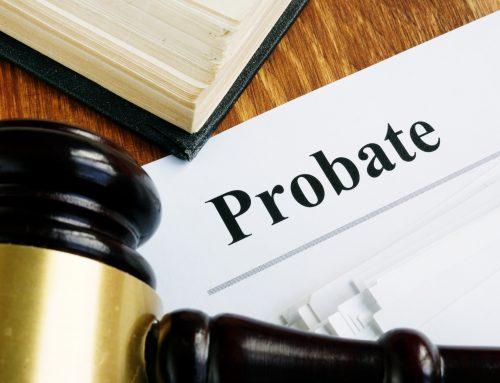If you have a small estate, you may be wondering if you can avoid the most difficult aspects of probate. And with small estate probate, you can — Indiana simplified probate allows you to streamline much of the process and escape some of the headache. Contact Barnes Cadwell Law today for more information.
What Is Simplified Probate?
Simplified probate, often called “summary probate” gives small estates a method of avoiding the complex procedures of typical probate process. Probate court can be extremely complex and often requires the help of an attorney. However, many personal representatives undertake simplified probate alone. When in doubt, a probate lawyer can be consulted regarding qualification for simplified probate or the closing statements.
Use a Simple Affidavit to Claim Property
If the value of assets left behind is lower than $50,000, then you may be able to skip probate entirely. This process requires the person to inherit property to prepare a short document, or affidavit, stating they are entitled to the property. This document is to be signed under oath. Once the affidavit is created, the person or entity holding the assets receives the document along with a copy of the death certificate, and the asset is released. Additionally, the person to inherit the assets must notify all other potential beneficiaries.
Simple affidavits can be used for an array of assets. However, they cannot be used to transfer real estate. This process is done out of court, and may allow probate court to be completely avoided in some situations. With this process, you must wait 45 days before the transfer is complete. This allows anyone who may challenge your affidavit or the transfer to come forward.
Simplified Probate in Indiana
If the total value of all property to be subjected to the probate process does not exceed $50,000, then the personal representative can distribute assets to the appropriate parties. Notification of creditors is not necessary prior to distributing assets. This method of Indiana simplified probate allows estates to save time and money in the probate process.
After the personal representative of a small estate distributes all assets, a closing statement will be mailed to all inheritors and creditors. That closing statement must indicate that the value of all property was less than $50,000. Inheritors are also owed an accounting of how all assets were distributed. If real estate was involved in the small estate, then an affidavit must be filed with the county recorder’s office where the real estate was located and along with the closing statement.
What If a Will Exists?
Even if a will exists, the personal representative of a small estate worth less than $50,000 can go through a simplified probate process. The only requirement for qualification of simplified probate is that all assets are worth less than $50,000.
What If Someone Challenges Simplified Probate?
As with any probate process, potential beneficiaries may challenge the division of assets. If someone challenges simplified probate, then a court may get involved. However, in most cases an attorney can help you iron out the details of division of assets for a small estate.
The closing statement provides all inheritors an idea of what was distributed and to whom. It’s best to let everyone know what property was distributed. If they want to challenge the situation, they can let the personal representative know or seek action in court.
What Assets Are Counted in the Value of the Estate?
Since simplified probate is only valid for small estates valuing less than $50,000, there are sometimes questions about what assets count towards that value. Anything owned entirely by the deceased person would count towards the value of their estate. However, property that is jointly owned or considered retirement plans, payable-on-death accounts, and transfer-on-death deeds, would not be counted towards the $50,000 mark.
Contact Us to Learn More About Indiana Simplified Probate
Although simplified probate can be easier than the typical probate process, it can also be confusing. You may not know which property counts towards the $50,000 value, and you may be unsure about how to distribute property correctly. An Indianapolis IN probate lawyer can provide you with guidance and inform you of your options. Contact Barnes Cadwell Law today.






